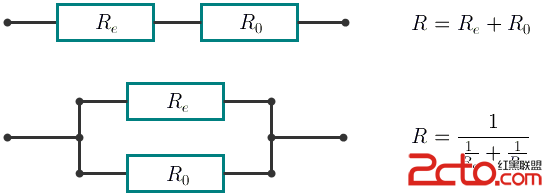Mad scientist Mike is building a time machine in his spare time. To finish the work, he needs a resistor with a certain resistance value.
However, all Mike has is lots of identical resistors with unit resistance R0?=?1. Elements with other resistance can be constructed from these resistors. In this problem, we will consider the following as elements:

With the consecutive connection the resistance of the new element equals R = Re + R0. With the parallel connection the resistance of the new element equals  .
In this case Reequals the resistance of the element being connected.
.
In this case Reequals the resistance of the element being connected.
Mike needs to assemble an element with a resistance equal to the fraction  .
Determine the smallest possible number of resistors he needs to make such an element.
.
Determine the smallest possible number of resistors he needs to make such an element.
The single input line contains two space-separated integers a and b
(1 <= a, b <= 1^18). It is guaranteed that the fraction  is
irreducible. It is guaranteed that a solution always exists.
is
irreducible. It is guaranteed that a solution always exists.
Print a single number — the answer to the problem.
Please do not use the %I64d specifier to read or write 64-bit integers in С++. It is recommended to use the cin, cout streams or the%lld specifier.
In the first sample, one resistor is enough.
In the second sample one can connect the resistors in parallel, take the resulting element and connect it to a third resistor consecutively. Then, we get an element with resistance  .
We cannot make this element using two resistors.
.
We cannot make this element using two resistors.
CF
題意:就是去找最少要多少個電阻可以達成功能!
思路:如果 a/b > 1 則 a/b 整數部分可以加到ans,a再模b; 如果a == b 則ans += a , a變為0; 如果 a/b < 1 則b/a 整數部分可以加到ans,b再模a
例如:3/5 要先變為1 / ( 2 / 3 +1 ) ,ans=1,然後變為 1 / ( 1 / 2 + 1 ) , ans=2,最後1 /(1 + 1),ans =4
AC代碼:
#include#include #include #define ll long long using namespace std; int main() { ll a, b; while(scanf("%lld %lld", &a, &b)!=EOF) { ll ans = 0; while(a) { if(a > b) { ll t = a / b; ans+=t; a=a%b; } else if(a == b) { ans+=a; a=0; } else if(a < b) { ll t = b / a; ans+=t; t = b; b = a; a=t%a; } } printf("%lld\n", ans); } return 0; }